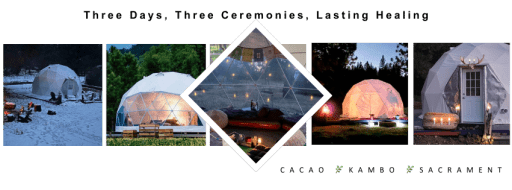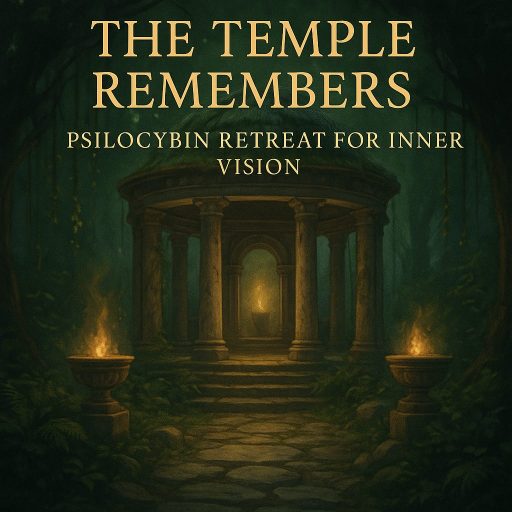Psilocybin for Trauma Healing: A Sacred Journey to Wholeness
Introduction: The Unseen Wounds of Trauma
Trauma doesn’t always leave visible scars. For many survivors of childhood adversity, abuse, combat, or loss, the wounds live deep inside — hidden in the nervous system, replayed in flashbacks, and echoed in the patterns of daily life. Traditional therapies have offered pathways toward healing, but for some, progress stalls. The mind understands, yet the soul still aches.
In recent years, psilocybin — the naturally occurring psychedelic compound found in over 200 species of mushrooms — has emerged as a powerful ally in trauma healing. Far beyond its cultural associations, psilocybin is being recognized by scientists, therapists, and shamans alike for its ability to unlock the subconscious, release stored trauma, and reconnect individuals with their innate wholeness.
This blog will guide you through how psilocybin healing works, why it is considered a sacred medicine, and how safe, guided retreats can offer a life-changing path to recovery.
Trauma as a Spiritual Wound
Trauma is more than a psychological condition — it is a spiritual wound. When a person experiences overwhelming pain, their sense of self often fractures. They may feel disconnected from their body, emotions, and even their own spirit.
Conventional approaches like talk therapy and medication may ease symptoms, but they rarely touch the root: the soul’s longing to be restored to wholeness. This is where psilocybin offers something profound — it addresses trauma not just as a clinical disorder, but as a sacred imbalance in need of harmony.
The Science of Psilocybin and Trauma Healing
Modern research is beginning to confirm what indigenous traditions have known for centuries. Psilocybin has the capacity to quiet the brain’s “default mode network,” the part responsible for ruminating on past pain and reinforcing cycles of fear.
-
A 2022 study in Nature Medicine found that psilocybin-assisted therapy significantly reduced symptoms of post-traumatic stress disorder (PTSD) in participants who had not responded to conventional treatment (Mitchell et al., 2021).
-
Clinical trials at Imperial College London demonstrated that psilocybin not only helps reprocess traumatic memories but also fosters lasting increases in emotional resilience (Carhart-Harris et al., 2016).
-
Johns Hopkins University has documented psilocybin’s ability to generate mystical-type experiences, which are strongly correlated with lasting improvements in well-being (Griffiths et al., 2018).
-
Neuroscientist Robin Carhart-Harris has written extensively about the therapeutic mechanisms of psychedelics, including their ability to “reset” maladaptive brain patterns (Carhart-Harris & Friston, 2019).
-
Author and journalist Michael Pollan explores both the science and spirituality of psilocybin in his book How to Change Your Mind (Pollan, 2018).
This growing body of evidence points to psilocybin as a unique catalyst for healing trauma at both the neurological and spiritual levels.
Psilocybin Healing: From Suffering to Soul Awakening
For trauma survivors, the psilocybin journey often feels like a homecoming. Under skilled facilitation, the medicine invites people to revisit painful memories with compassion, reframe their narrative, and experience themselves beyond the trauma.
Participants frequently describe:
-
A deep sense of forgiveness for self and others.
-
Release of body-held tension and somatic trauma.
-
Connection with spiritual dimensions, ancestors, or inner guides.
-
A renewed sense of meaning and purpose.
This is why psilocybin healing is more than symptom relief. It is a soul awakening. It shifts the identity from “I am my trauma” to “I am whole, resilient, and connected.”
Sacred Container: Why Retreats Matter
While psilocybin can be profoundly healing, the setting in which it is experienced determines the outcome. Unstructured or recreational use may feel chaotic, whereas a retreat offers a safe, sacred container where healing can unfold with support.
At psychedelic therapy retreats, participants are guided through carefully prepared ceremonies in nature, held by trained facilitators who ensure both safety and spiritual depth. This structure allows survivors to surrender fully, knowing they are supported every step of the way.
Similarly, healing retreats for trauma and PTSD provide integration practices — meditation, breathwork, shamanic wisdom, and community — so that the lessons from the journey become lived transformation rather than fleeting insight.
For those drawn to ancient teachings, the shamanic plant medicine retreat blends time-honored practices with modern trauma-informed care, offering an even deeper spiritual container.
Trauma Healing as a Journey, Not a Quick Fix
One of the myths about psychedelics is that a single ceremony is a “magic bullet.” In reality, trauma healing is a process. Psilocybin opens the door, but integration — the work of embodying insights — is what makes healing lasting.
Retreat participants are encouraged to:
-
Journal their experiences.
-
Engage in continued therapy or coaching.
-
Practice mindfulness and grounding exercises.
-
Connect with supportive communities.
This holistic approach ensures that the breakthroughs of the ceremony translate into long-term resilience, not just temporary relief.
Stories of Transformation
While research provides data, the stories of survivors show the heart of psilocybin healing.
-
A combat veteran with severe PTSD reported, “For the first time in 20 years, I slept through the night without nightmares.”👉 https://meehlfoundation.org/plant-medicine/psychedelic-therapy-retreats-transform-trauma-into-healing/
-
A survivor of childhood abuse shared, “The medicine showed me I am not broken — I am loved. That shift changed everything.”
-
👉 https://meehlfoundation.org/plant-medicine/healing-retreat-for-trauma-ptsd-sacred-wholeness/
-
Psilocybin Retreats in the USA: Safe, Guided Healing in Nature
-
-
A mother grieving the loss of her child described her journey as “a sacred reunion with his spirit and with my own capacity to live again.”
Each of these testimonies illustrates how psilocybin is not merely medicine for the brain, but for the soul.
Safety, Legality, and Responsible Use
It’s essential to note that psilocybin remains a controlled substance in many parts of the world. However, growing legal access is emerging through retreats, decriminalization initiatives, and clinical trials.
For those seeking healing, it is vital to choose a retreat that prioritizes:
-
Legal and ethical practices.
-
Experienced facilitators trained in trauma-informed care.
-
Medical screening for contraindications.
-
Aftercare and integration support.
This ensures that the journey is not only safe but profoundly effective.
The Spiritual Gift of Psilocybin
Indigenous cultures have long regarded psilocybin mushrooms as sacred teachers. They are not simply chemicals — they are allies. When approached with reverence, psilocybin offers wisdom that reaches beyond the rational mind into the mystery of spirit.
For trauma survivors, this means not just healing from pain, but awakening to a life infused with connection, joy, and sacred meaning.
Conclusion: Answering the Call to Wholeness
Trauma may fracture the soul, but wholeness is always possible. Psilocybin healing is not about escaping pain, but about transforming it into wisdom. Within the safe container of a retreat, guided by compassionate facilitators, survivors can finally release the past and reclaim their true selves.
If you are hearing the call of this sacred medicine, know that you are not alone. The path of healing is waiting — a path that leads not only to recovery but to awakening.
Call to Action (King Kong Close)
🌿✨ Beloved soul, your trauma does not define you. You are more than the wounds you carry. You are whole, radiant, and ready to rise.
If your heart is whispering “Yes,” then trust it. This is your invitation.
👉 Book your sacred psilocybin retreat now and step into the journey of profound healing and awakening.



